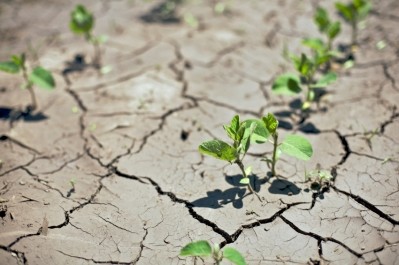Packaged food firms getting to grips with water scarcity challenges

The warning comes from a new report by Ceres. Feeding ourselves thirsty is an update of research the non-profit did a couple of years ago, and includes a new analysis of how major packaged food, beverage, agricultural and meat companies are responding to water risks and whether their performance has improved.
Ceres scored companies on governance and strategy, direct operations, manufacturing supply chain and agricultural supply chain.
Overall, it was good news, with the water risk management scores of all the 42 companies assessed improving by an average of 10%.
Food manufacturers made some of the biggest gains, with seven scoring 50 or more points out of a possible 100. Nestlé came top with 82, followed by Unilever (73) and PepsiCo (70). Propping up the table amongst food brands was Kraft Heinz, with just nine points.
Ceres found that a “growing number of food sector players now have a handle on their operational water use and discharge volumes”, but wastewater management practices “remain murky”.
There has been a significant increase in companies with commitments to source at least two of their major agricultural inputs more sustainably – from 23 out of 42, compared to just two of 15 assessed back in 2015. However, only six (Coca-Cola, General Mills, Kellogg, Nestlé, PepsiCo and Unilever) have gone further than this.
Indeed, efforts to support suppliers could be improved, with engagement at producer level on water-smart practices “targeted or relatively small”, the authors noted. The number of companies assessing their water risks jumped 30% compared to two years ago, with 35 of the 42 conducting a “barebones” risk assessment of their operational water risk. However, “supply chain risk is still being ignored by many in the sector”, said Ceres.
Last month, the Water Footprint Network warned that Europe’s confectionery industry has underestimated the impact that water scarcity could have on key commodities like sugarcane, hazelnuts and almonds.
Drought, for example, could lead to higher prices for some crops, as well as supply shortages. In April, experts warned that those businesses reliant on crops like soy, cocoa, coffee and palm oil could also be left exposed if climate change alters rainfall patterns in producing countries.
A recent MCSI analysis of food companies found that €385bn ($459bn) in revenue may be at risk from lack of water availability for irrigation or animal consumption, whilst €166 ($198bn) is at risk from changing rainfall patterns affecting current crop production areas.
The financial fallout from water scarcity is “increasingly evident”, noted Ceres, with the likes of Nestlé, Coca-Cola and Diageo disclosing the financial impacts linked to water challenges. Some 85% of the companies it scored cited water as a material risk in their financial filings.

















